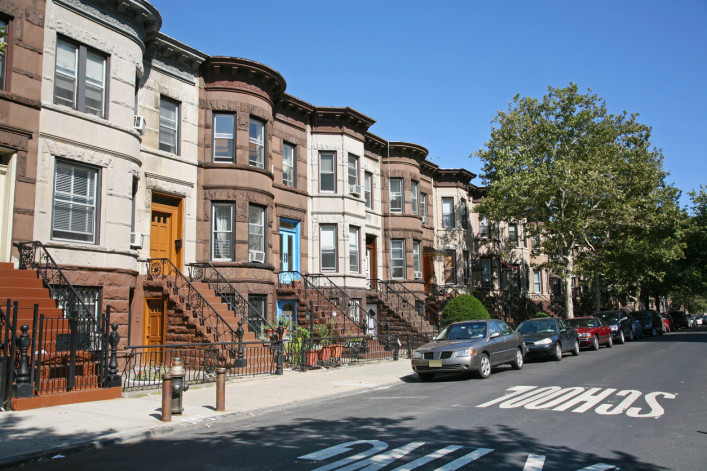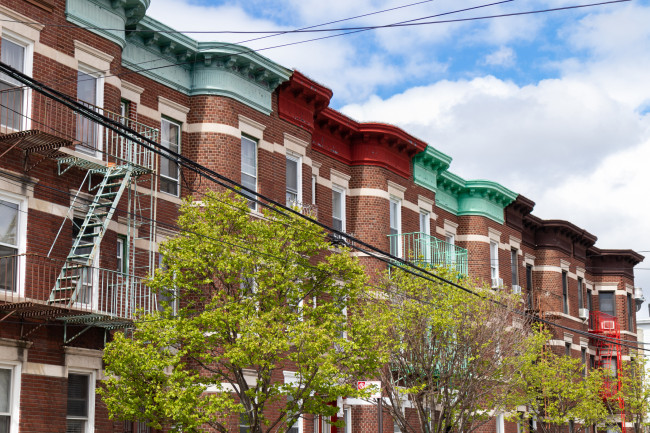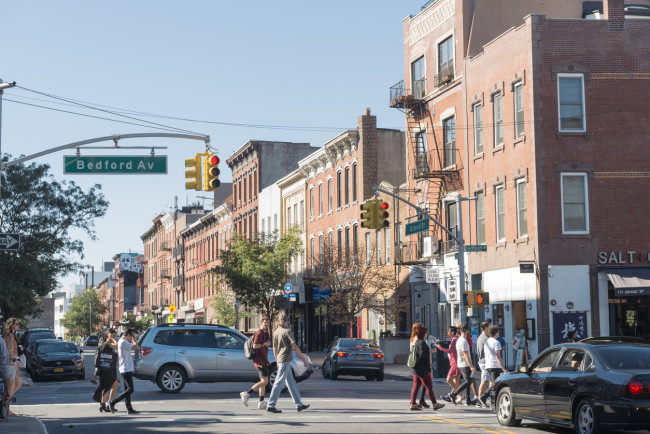Mortgages that don’t break Islamic laws on paying interest

There are a few financing options that can make an apartment or townhouse purchase Sharia-compliant.
iStock
For observant Muslims, buying an apartment means you aren’t allowed to pay or receive interest, a restriction that complicates the already fraught process of apartment hunting in New York City. Because of this stipulation in the Koran, many Muslims seek Sharia-compliant alternatives to traditional financing.
Paying all cash is the obvious way to avoid paying interest (riba) on an apartment purchase but the prices in New York City make that extremely difficult.
According to Douglas Elliman’s market report for the last quarter, the median sales price for apartments in Queens was $607,350; in Brooklyn, $820,000; and in Manhattan it continues to hover around the million-dollar mark. That means it can be difficult to raise the funds even if you have family and friends chipping in to help you meet the asking price.
Renting indefinitely is clearly another solution, however there are also several lending programs—usually facilitated by a third party—that offer Sharia-compliant financing if you want to buy.
[Editor's note: An earlier version of this post was published in September 2019. We are presenting it again with updated information for September 2020.]
How it works
There are three main models of financing that can make an apartment or townhouse purchase Sharia-compliant. The first is a rent-to-own structure (ljara) where the property is purchased by a trust and the borrower is listed as grantor, trustee, and beneficiary. The second is a cost-plus model (murabahah) where a bank buys the apartment at a price above asking and a buyer pays back the cost over time. Another option is a co-financing option (musharaka) where a buyer and an investment partner jointly own the apartment.
Gemala Afifi leads the marketing at Ijara CDC, a non-profit providing consulting about these types of mortgages to buyers in New York City. She points out rates have been good recently and in spite of the pandemic, more buyers are seeking out these types of arrangements.
You’ll likely need a third party to structure the financing
Once you decide how you want to proceed you will probably need a facilitator to structure the financing between yourself and an investor or lender. Ijara CDC offers the rent-to-own model and has helped buyers in Brooklyn and Queens. Afifi says the payments are comparable to a mortgage payment—part of it going towards ownership and part of it paying the rent.
Guidance Residential is a similar company providing support to New York City buyers.
Problem-solving if there are issues with repayments
The impact of defaulting on payments will vary depending on your lender and facilitator. Afifi says, Ijara CDC will work with the investor and the client to find a solution where the investor and borrower are comfortable. “Investors don’t want to be maintaining properties so whatever needs to be done so that they can still get a return on their investment, they’ll be willing to do,” Afifi says.
Triplemint's Off-Market Advantage
Discover off-market properties in your dream neighborhood that perfectly suit your needs and budget. Meet and deal with sellers before their apartment hits the market.


Let Triplemint's off-market team give you exclusive access to apartments in your price range and desired neighborhood that no one else has seen. More options, less competition, no bidding wars.
Discrimination at closing
Due to the nature of the financing structure, there will be additional paperwork at closing. Afifi says there can sometimes be issues with title companies who are put off by Islamic documents and they won’t want to be involved. “If that happens we have ways of getting them signed, at a different attorney’s office, or by using a different title company,” she says.
Pros and cons
Islamic banking models probably won’t give you the most competitive price but they do allow you to be compliant to your faith. It will depend on how strictly you observe the Islamic rules.
“If you want the lowest rate, and don’t care about the religious part of it, then this is not the right avenue. It’s comparable but it’s not the cheapest,” Afifi says. She points out, it is not free money which is sometimes the misconception, there is still a profit earned but it is earned through payment for using property rather than payment for using money. You should also be aware that buying into a co-op has a complexity that isn’t usually compatible with the Islamic loan system although Afifi says her company can work with lenders that offer co-op financing and help structure the transaction to be Islamically compliant.
One change in the past few years is an increase in the range of products that can be structured in Sharia-compliant ways, like construction and renovation loans as well as cash-out refinancing options.
Afifi says anyone that doesn’t believe in interest can use this financing structure. “We’ve had non-Muslims reach out to us. Native Americans have called us, Sikhs, and members of other faiths.”
In addition, Afifi says “the demand for Islamic financing is definitely growing.” While NYC is one of the major hubs for it, she says there is a lot of demand coming from other states. “Even areas where we usually do not get clients from, like Alaska and North Dakota."
—Earlier versions of this article contained reporting and writing by Lucy Cohen Blatter.
You Might Also Like






























